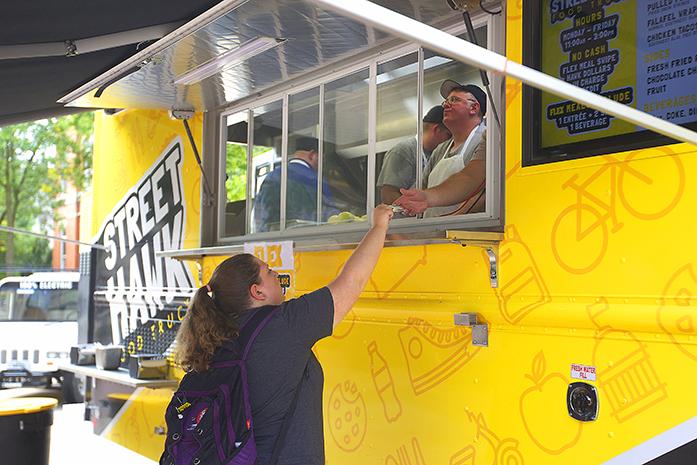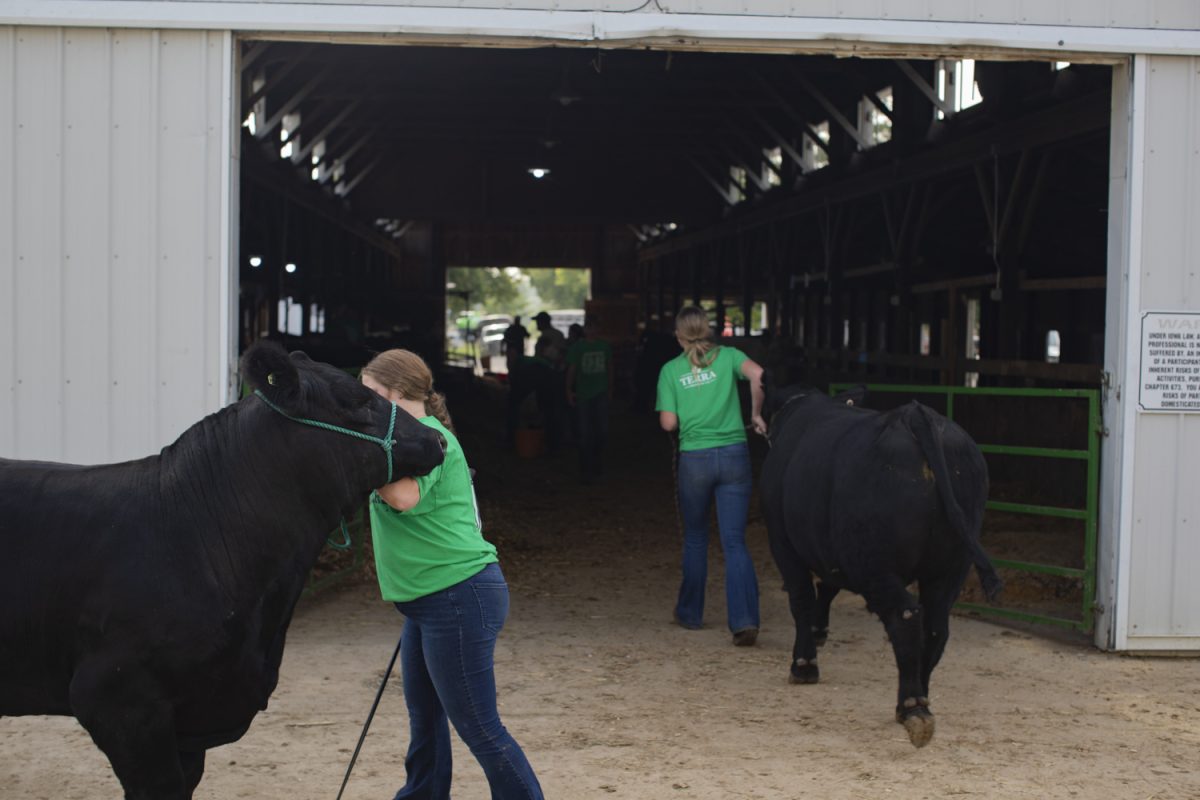By Molly Hunter
An amendment to Iowa City’s existing food-truck ordinance will undergo the second of three considerations by the City Council this evening. The amendment passed its first test, 7-0, on Jan. 3; the council must pass it two more times before it is approved.
The amendment would allow a 90-day pilot program for increased food-truck operations downtown and in the North Side Marketplace.
“This ordinance amendment is the first step to authorize the pilot program that we discussed in November after the Mobile Vending Association came forward with its proposal,” said Assistant to the City Manager Simon Andrew.
The association’s proposal would allow between six and 10 food trucks to set up shop downtown and on the North Side. If the pilot program is successful, downtown food-truck vendors may see increases in their hours and areas of operation.
The program would allow food trucks to operate in the downtown zone and the North Side Marketplace between 10 p.m. and 3 a.m. In other parts of the city, the regular hours of food truck operation between 7 a.m. and 9 p.m. would remain unchanged.
Since most downtown brick-and-mortar restaurants close before 10 or 11 p.m., Andrew said, the association’s mobile program hopes this change will avoid creating competition.
“Currently, the hours of operation and locations are codified in city code,” Andrew said.
The amendment to the existing food-truck ordinance is necessary, he said, to allow the city manager the authority to establish the pilot program.
The association has also advocated altering the restrictions on food-truck operation in certain zones.
Currently, there are no designated food-truck parking spaces. Such operators must vend from street meter spaces. While the pilot program does not tackle the creation of food-truck spaces, the Mobile Vending Association’s pilot program has indicated that the lack of designated parking is something it hopes to address in the future.
Additionally, food trucks are prohibited within 150 feet of any brick-and-mortar restaurant or University of Iowa food-service operation. The association hopes to lower this to 100 feet.
The city has yet to decide how the pilot program will address the location concerns.
“The next step before we get to the third reading of this ordinance is to sit down with the Downtown District and the vendors to hash out what the best locations for testing this program would be,” Andrew said.
However, he said, arguably the most important goal of those conversations will be to establish criteria for the pilot program’s success.
Apart from business competition, important concerns include how increased food-truck operations will affect public health, sanitation, and the flow of pedestrian, bicycle, and vehicle traffic in the dense downtown.
Mayor Jim Throgmorton said, “I’m really happy to see we’ll obtain stakeholder feedback and really get a sense of how it works from particular points of view.”







